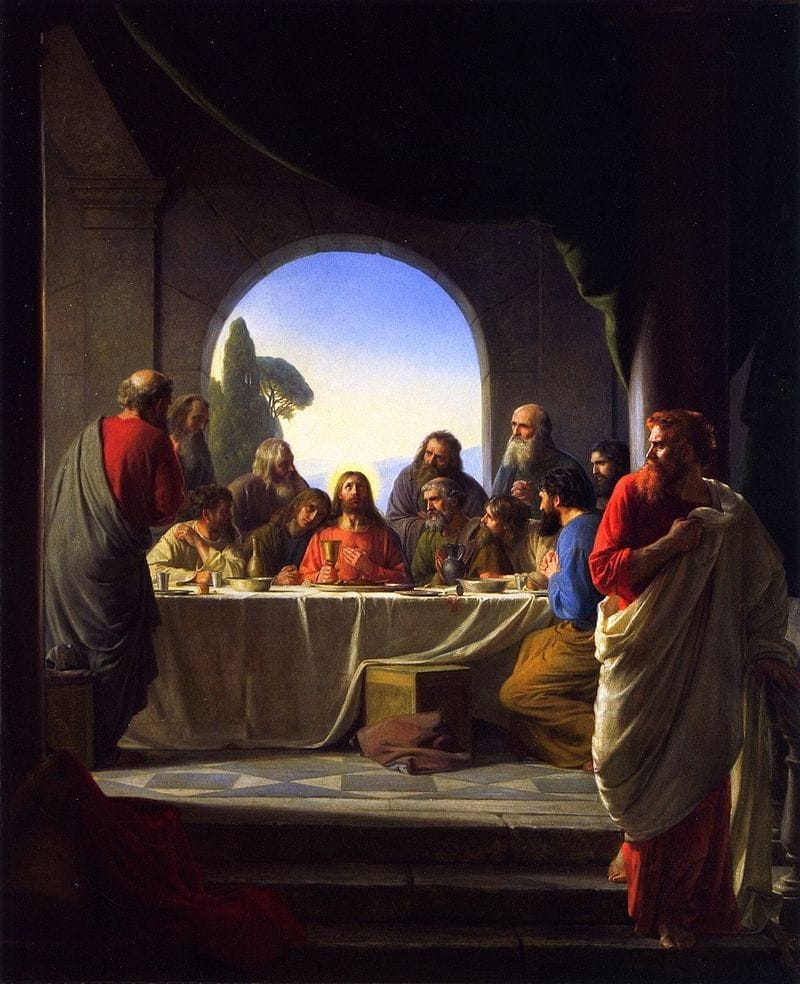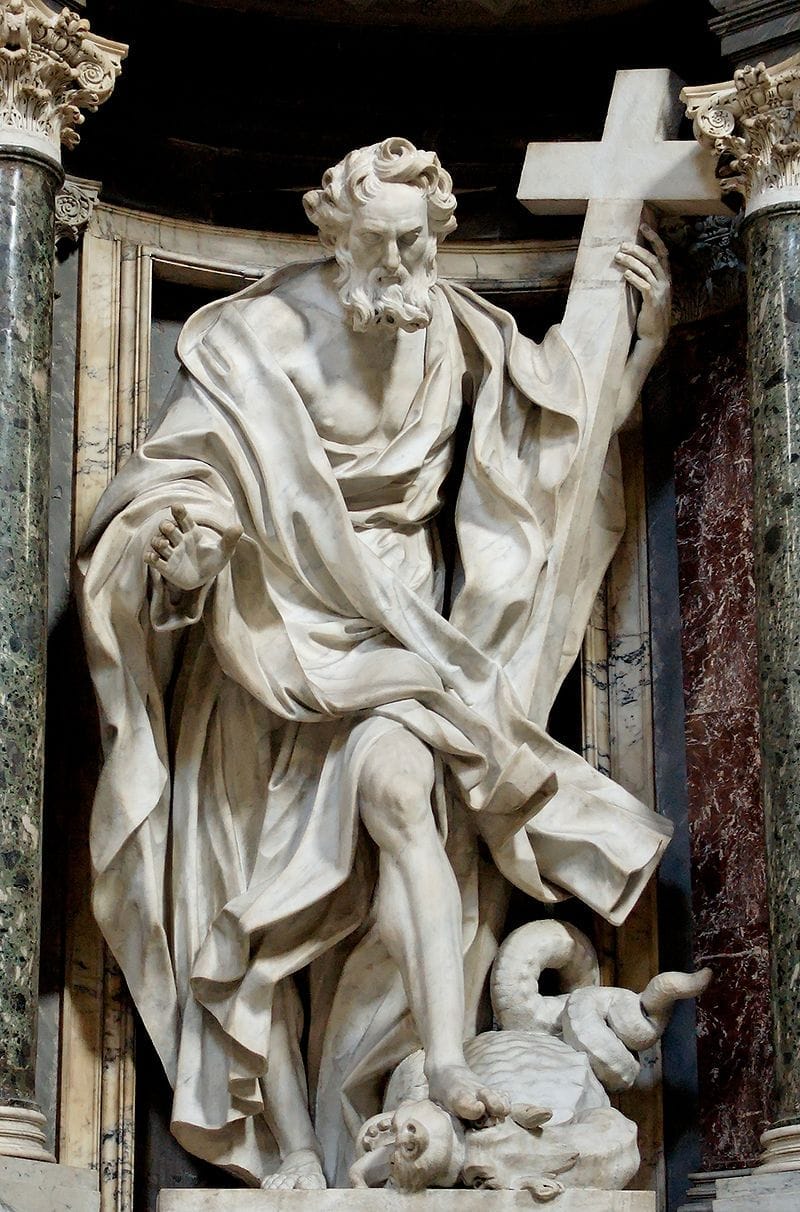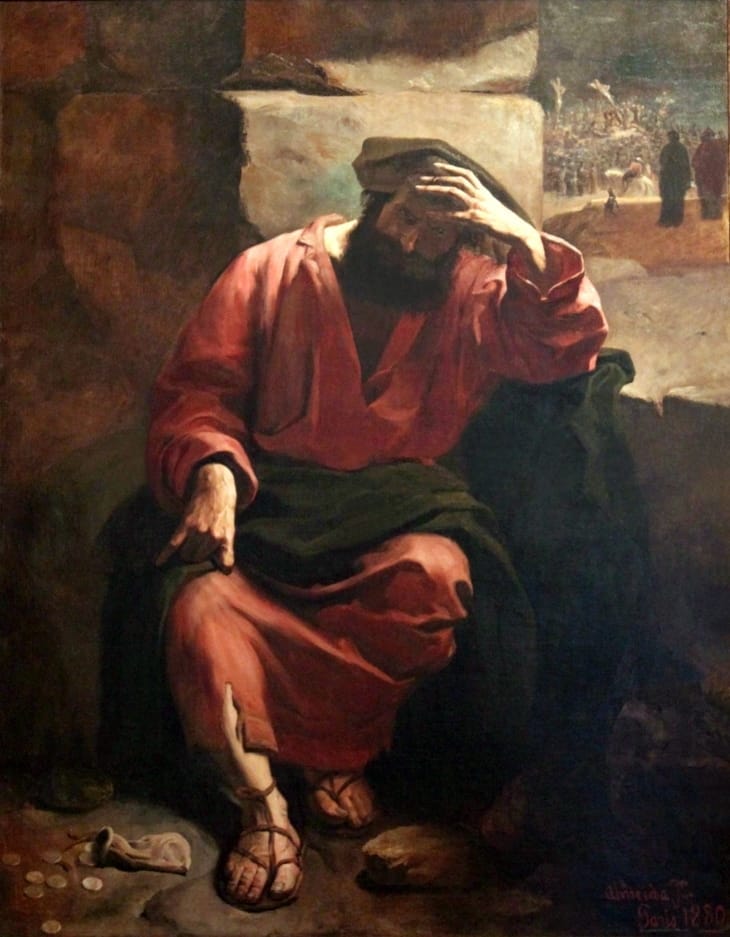The Twelve Apostles
They were tortured, flayed, and crucified—not for a myth, but because they swore, they had seen a dead man breathe again.
The story of the twelve apostles is not just history. It’s blood and fire. It’s the cry of men who watched their teacher tortured, murdered, and buried—then gave up everything to carry His message across a hostile world. Ordinary men—fishermen, tax collectors, political radicals—became outlaws for the gospel. Hunted. Tortured. Killed. But not before turning the world upside down.

Peter, once a fisherman with a temper, swore he didn’t even know Jesus. Three times. But guilt tore through him like a sword. And that shame became his strength. He stood before emperors and mobs alike, preaching with a fire that shook Rome. He died upside down on a cross, not by force, but by choice—too unworthy, he said, to die like his Lord.
Andrew, his brother, carried the gospel east. When they told him to stop preaching, he refused. They tied him to a cross shaped like an X, leaving him to die slowly. For two days, he preached from that cross, voice breaking, breath fading, until silence fell.
James, son of Zebedee, became the first apostle to be executed. Herod Agrippa had him beheaded with a sword. No trial. No warning. Just a flash of steel in the streets of Jerusalem. His crime? Loyalty.
John, his brother, watched Jesus die—stood at the foot of the cross while the others scattered. He outlived them all, carrying the pain of their deaths and the weight of Revelation. They boiled him in oil. He survived. So, they exiled him to Patmos. He died alone—but free.

Philip brought a Roman official’s wife to faith. For that, he was crucified in Hierapolis. He didn’t resist. He sang. They say even his executioners wept.
Bartholomew went further than most—Armenia, India, maybe Ethiopia. Wherever he went, he preached Christ. They caught him and flayed him alive. Then they beheaded him. His skin, they say, was stripped like a lamb’s.
Matthew, once hated as a tax collector, found a different master in Christ. He wrote the first Gospel, then went south, preaching in Ethiopia. They stabbed him to death. His blood soaked the ground he’d just sanctified.
Thomas doubted. Until he touched the wounds. That touch sent him east to India. He baptized thousands. Then they speared him—over and over. His body collapsed, but not his faith.
James the Less wasn’t loud, but he was firm. He led the church in Jerusalem until they dragged him to the Temple’s pinnacle and threw him off. When he didn’t die, they beat him with clubs until he stopped moving.
Thaddeus—Jude—wrote one letter. One furious plea to stand firm in the faith. Then he and Simon the Zealot were hacked to death in Persia. Clubs. Axes. It didn’t matter. They wouldn’t stop preaching.
Simon, once a revolutionary fighting Rome, found a greater cause. He traded his dagger for the gospel and died sawn in half. A gruesome death for a man of peace.

Judas Iscariot is the darkest name on the list. He walked with Christ, saw the miracles, and still sold Him out for silver. Regret ate him alive. He returned the money, then hanged himself. A shattered man. A shattered legacy.
Matthias replaced Judas. He didn’t ask for it. He was chosen. His reward? Stoning, then beheading. A borrowed legacy, sealed in blood.
And then there’s Paul—the persecutor turned apostle. A man who once hunted Christians became their fiercest defender. He traveled farther, suffered more, and wrote the words that still guide millions. Nero beheaded him. But his letters outlived the empire.
After the resurrection, they gathered in fear. Then Pentecost came like thunder. Fire on their heads. Boldness in their bones. They left that upper room and never looked back.
They were arrested. Beaten. Imprisoned. Mocked. Yet none recanted. They didn’t just believe Christ had risen—they knew it. That certainty made them dangerous.
Their deaths weren’t tragic. They were triumphant. Martyrdom wasn’t failure—it was fulfillment. Every lash, every nail, every drop of blood was a seed.
Today, we name churches after them. We read their words. We walk in the faith they died for. But do we understand the price they paid?
They started as nobodies. They ended as saints. Not because they were perfect—but because they refused to quit.
And in their silence, they still speak.




Great post, it is deeply saddening and horrifying what they endured even as it is inspiring what they could endure and overcome. Thanks for this.
Wonder what you might make of my analysis of Paul Apostle of Christ?